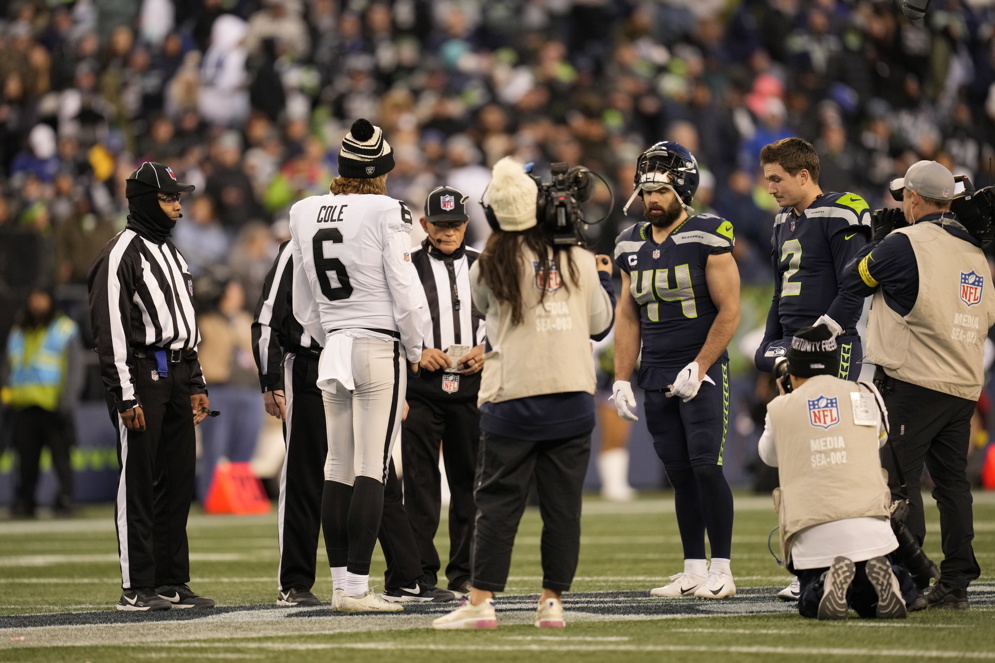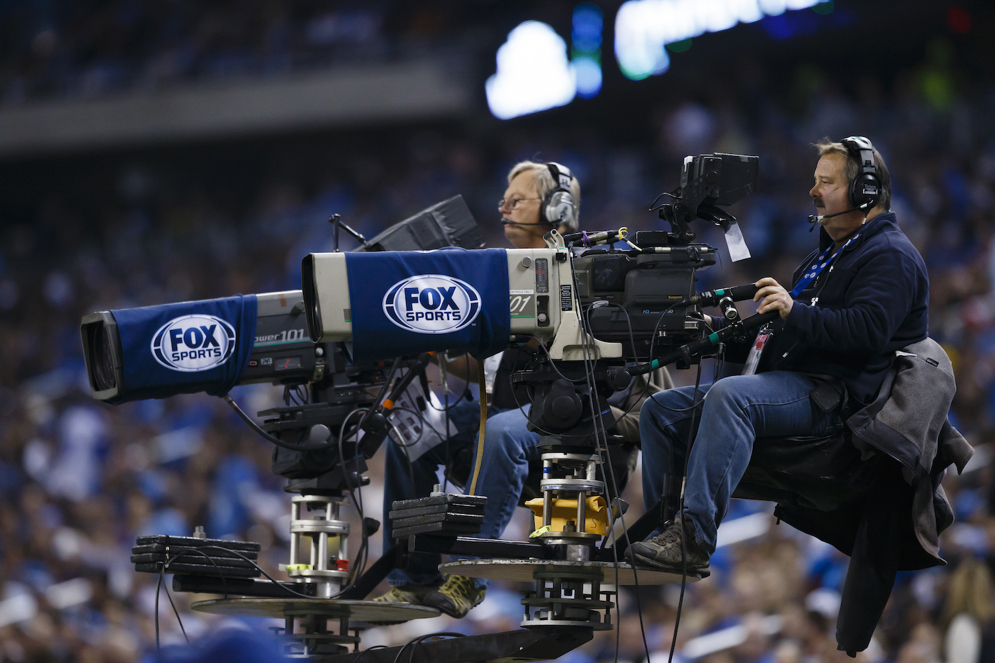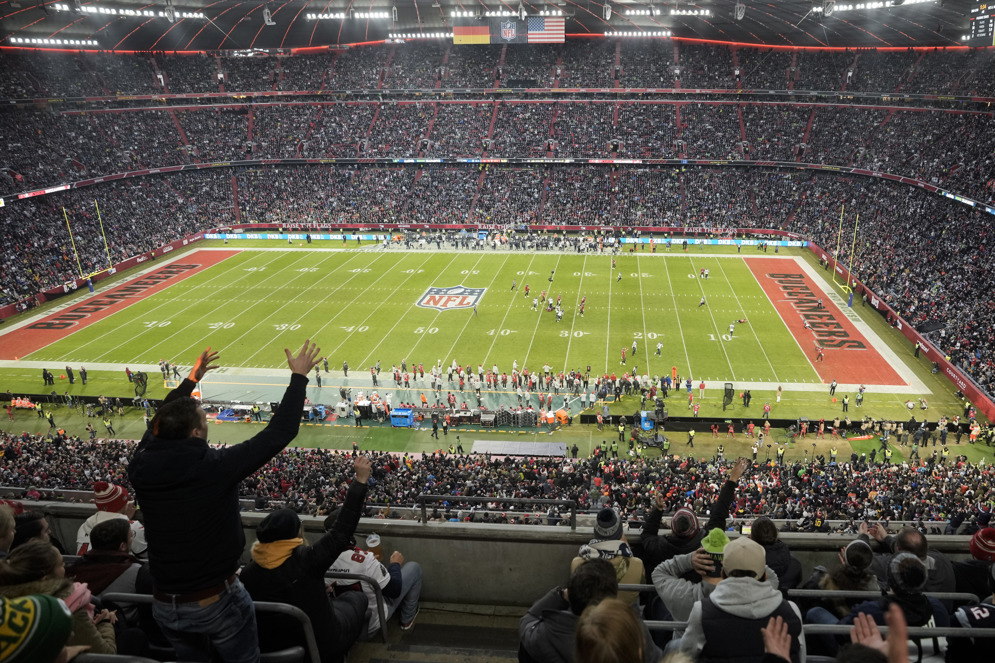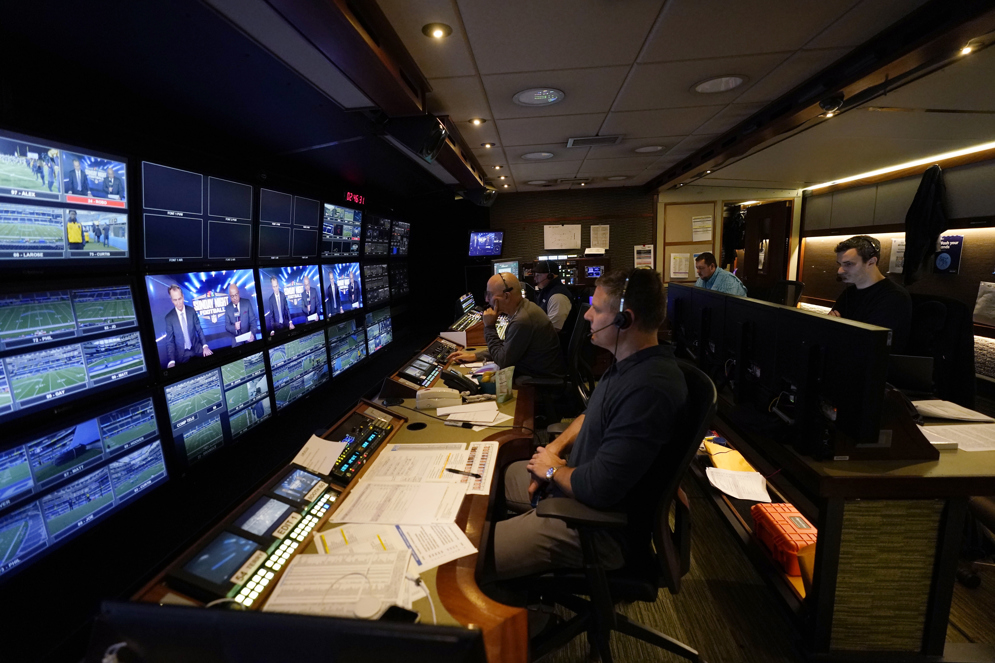Creating the NFL Schedule
It takes thousands of computers and six NFL executives to create the NFL’s 272-game masterpiece.
It takes thousands of computers and six NFL executives to create the NFL’s 272-game masterpiece.
The NFL schedule makers — Vice President of Broadcasting Michael North, Senior Vice President of Broadcasting Howard Katz, Senior Director of Broadcasting Blake Jones, Director of Broadcasting Charlotte Carey, Vice President of Broadcasting Onnie Bose, and Broadcasting Senior Coordinator Lucy Popko — must consider the fans, the league’s broadcast partners and many other factors when building the 272-game schedule that spans the 18 weeks of the NFL season and showcases the league’s best matchups and talent.
The schedule makers will have to work around events that are already scheduled to take place in or near NFL stadiums — events that may compete with the games, put undue stress on the playing surface, or create traffic or logistical nightmares. The league begins collecting information from the clubs in January about any events that may create scheduling conflicts.
The schedulers are also constrained by internal factors. A formula determines each team’s opponents every year, and a rotating schedule ensures that every team plays each of the other 31 at least once in a four-year period.
It takes thousands of cloud-based computers to produce thousands of possible schedules — a process that sets the stage for the schedule makers to begin the arduous task of picking the best possible one.

The NFL's scheduling formula ensures that all teams will play every team from every division in the other conference once every four years.
The league’s 32 teams are split into two conferences — the American Football Conference (AFC) and the National Football Conference (NFC). The 16 teams in each conference are split into the East, North, South and West divisions; every division has four teams.
Every team will play 17 regular-season games with one bye week. Teams will alternate seasons where they host nine regular-season games and one preseason game, or eight regular-season games and two preseason games. The AFC will have nine regular season home games in the 2023 season.
Here’s a breakdown of how each team’s opponents are set:

The league’s six broadcast partners (CBS, Fox, NBC, NFL Network, ESPN and Prime Video) all want each week’s best matchups to air on their networks so they can attract the largest audiences.
The NFL's marquee matchups often are scheduled to air during the week’s premier time slots — Thursday, Sunday or Monday nights or the late game on Sunday afternoons. The league typically schedules the Super Bowl champion at home for the Thursday night game that kicks off the new season.
The league will also schedule games on the Saturdays of Weeks 15, 16 and 18. In Week 15, three of the five designated matchups will be played on Saturday with the remainder being played on Sunday. Specific dates and start times for the designated Week 15 matchups will be determined and announced later during the season.
In Week 18, two games will be played on Saturday with the remainder being played on Sunday. Specific dates, start times, and networks for Week 18 matchups will be determined and announced following the conclusion of Week 17.
Additionally, Week 16 will feature a Saturday doubleheader split between NBC and Peacock. That week will also feature a Christmas day tripleheader on CBS, FOX and ABC.
Most NFL games are played on Sunday afternoons, with early games starting at 1:00 p.m. ET and the late games starting at either 4:05 p.m. ET or 4:25 p.m. ET, depending on whether the game is part of a network doubleheader.
The Sunday afternoon games are broadcast on CBS and FOX; and for the first time ever, games do not have a predetermined network assignment based on conference affiliation of participating teams. This change allows the scheduling team more flexibility to build Sunday afternoon windows across CBS and FOX.
The season will open and close with doubleheaders on both CBS and FOX and every market will see four Sunday afternoon games in Weeks 1 and 18. Over Weeks 2–17, Fox and CBS will each have eight doubleheaders. In those weeks, one network will show games in both Sunday afternoon time slots, while the other will air only one game in either of the two time slots. Doubleheader weeks generally alternate between networks, but not always. It is possible for one network to have doubleheaders on consecutive weeks, but not three weeks in a row.

In the NFL's inaugural regular season game in Germany, the Tampa Bay Buccaneers hosted the Seattle Seahawks at the Allianz Arena in Munich in 2022. (AP/Matthias Schrader)
In 2007, the NFL added a new twist to the scheduling process: the NFL International Series.
Each team is guaranteed to play internationally at least once every eight years. For the 2023 season, the NFL will once again feature games in the United Kingdom and Germany, with three games in London and two in Frankfurt.
Scheduling these matchups presents a challenge for the schedule makers, which is why setting the International Series games is a particular focus early in the process.
Schedule makers then look at a three-week window around the international games to try to find ways to make long travel less of a burden on the teams. This includes where a team plays in the week prior to an international game and whether or not they have a bye week following the game.
There will not be an international game in Mexico due to renovations taking place in Estadio Azteca in Mexico City.
In 2006, the NFL introduced a “flexible scheduling” procedure for NBC’s “Sunday Night Football.” Flex scheduling ensures that the Sunday night game will feature a quality primetime matchup.

(AP/Jae C. Hong)
During the 2023 season, flexible scheduling for Sunday night may be used twice between Weeks 5–10, Weeks 11–15 and Week 17. In flex scheduling weeks, the games listed for the Sunday night window are tentative and subject to change. Only Sunday afternoon games are eligible to move to Sunday night, in which the tentatively scheduled Sunday night game would move to a Sunday afternoon.
Sunday afternoon games may also be moved between the 1 p.m. ET, 4:05 p.m. ET, or 4:25 p.m. ET time slots.
Beginning in 2023, flexible scheduling will also be applied to ESPN's "Monday Night Football." This flexibility will be available in Weeks 12-15 and 17, allowing the NFL to move a different game into Monday Night Football and allowing the originally scheduled Monday night game to go back to Sunday afternoon. Monday Night Football flex scheduling decisions will be made on 13 days’ notice.
Fans have unprecedented access to more games each week, which will affect the scheduling process.

A rare November blizzard in Buffalo in 2014 prompted the league to move the Bills’ Week 12 home game against the New York Jets — originally a Sunday game in Orchard Park — to Monday of the same week in Detroit’s Ford Field.
Each team has one bye week assigned and many teams have a specific number of cross-country games scheduled (as determined by the standard formula at the conclusion of the previous season), stadium conflicts and other operational obstacles in their schedule. The scheduling teams aim to balance these operational elements while still trying to maximize fan viewership.
The process is challenging, and there may be no such thing as a perfect schedule, but the schedule makers consistently try to provide the NFL’s fans and broadcast partners with a compelling and entertaining slate of games week after week.